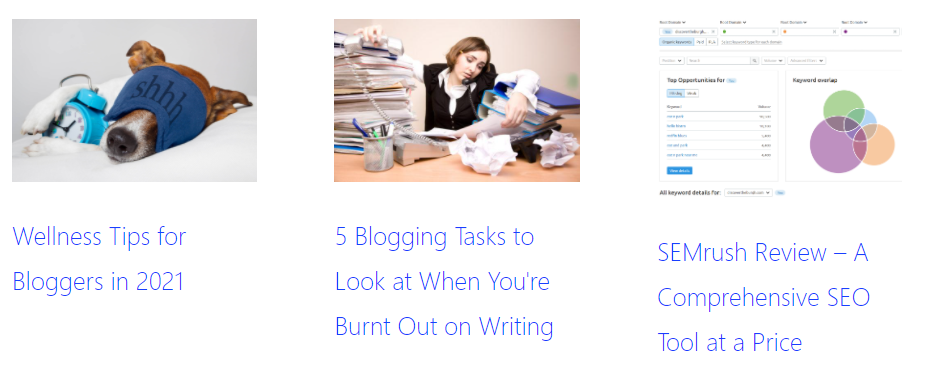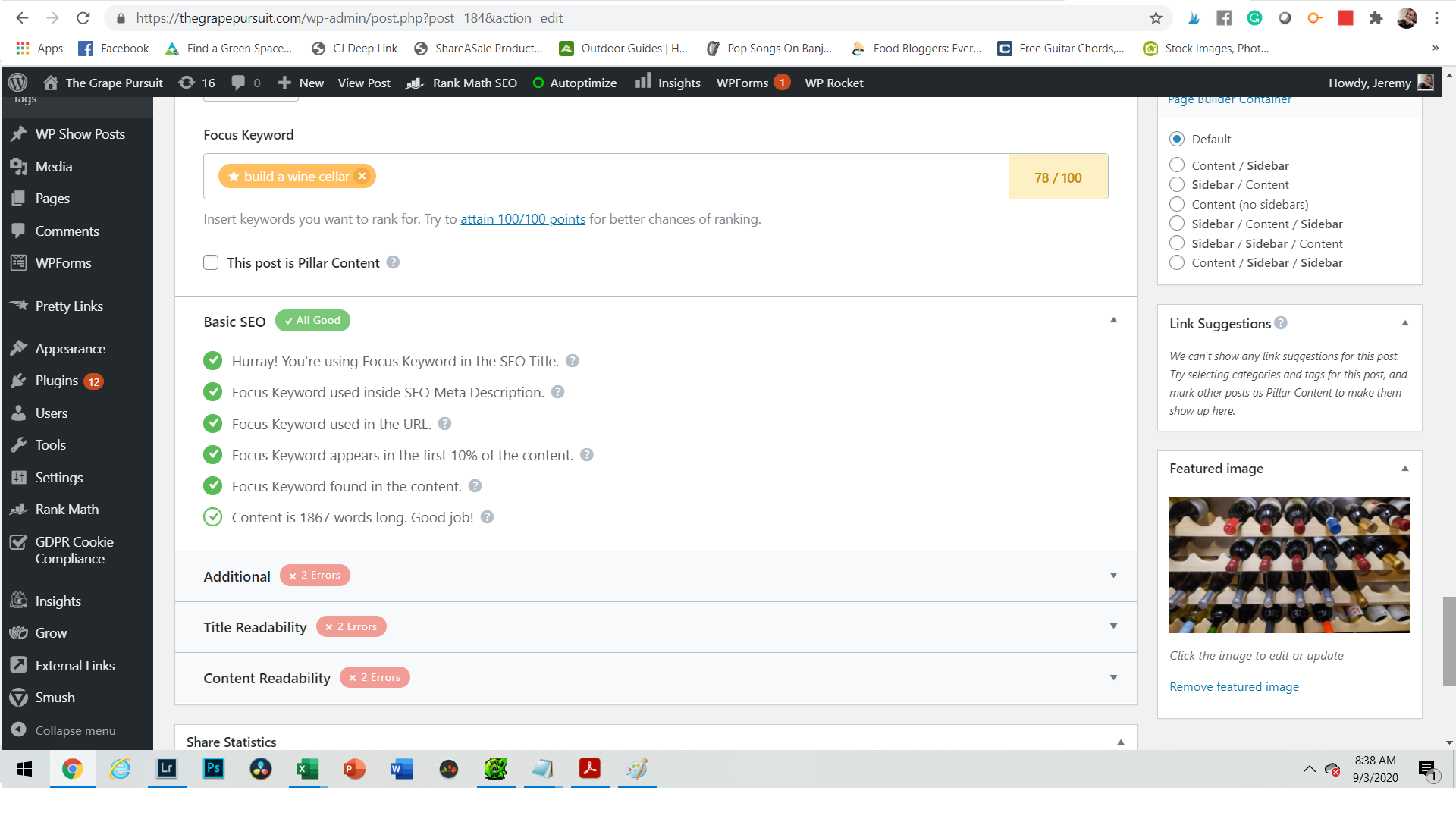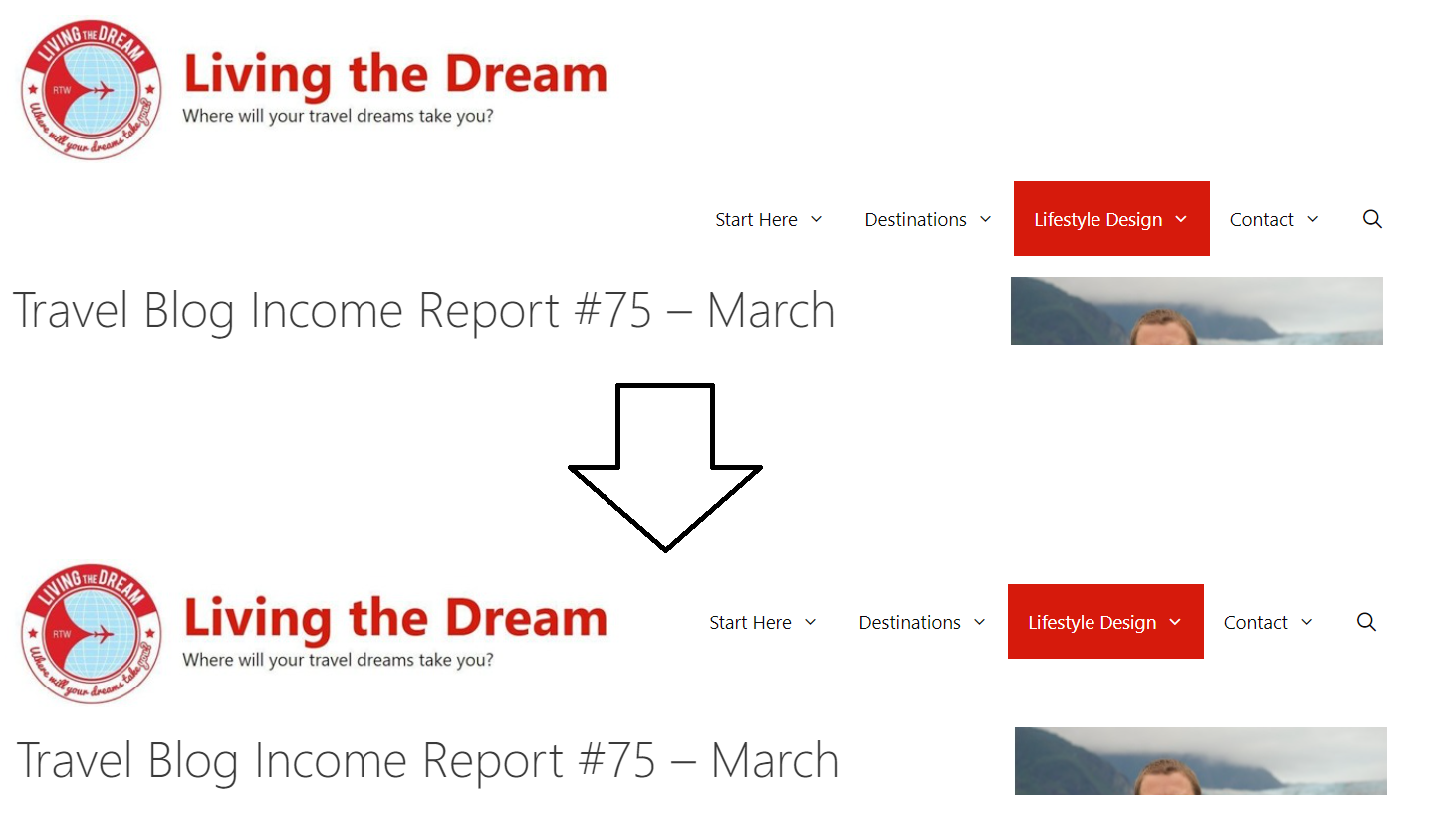Published by Jeremy. Last Updated on December 20, 2022.
Disclaimer: This Week in Blogging uses demographic data, email opt-ins, and affiliate links to operate this site. Please review our Terms and Conditions and Privacy Policy.
Artificial Intelligence seems to be taking the content creation world by storm these days, with new tools coming on the market every month for creating text, images, graphics, and more.
While some of these tools do appear to be fascinating and, dare we say, possibly quite useful for bloggers at large, we have to take a step back and think about an ethics question that is on everyone's minds: “Your scientists were so preoccupied with whether they could, they didn’t stop to think if they should.”
Wait, no, that is Jurassic Park. But we'll run with it because the same ethics concern applies. Just because it is there, should we use it?
Let's dive into that one today looking at three broad AI uses that may be of interest to bloggers.
Note: We used AI for some elements of this article purely to illustrate points. These will be clearly noted. Otherwise the content featured herein is 100% original.
AI Images – Fix Your Own Photos, Don't Create Images

If you've been on social media in late 2022, odds are good you've seen a wealth of AI-created images pop up on your feed. Services like DALL-E 2, Lensa, and MyHeritage have been using the power of machine learning to modify and/or create images- often based on text inputs alone.
While these tools are fun to play around with, for many, they are crossing an ethical line as the act of content creation is using a computer to replace a fellow content creator. Instead of hiring an artist to paint your portrait, AI can do it for you. Instead of paying for stock images or licensing photos, DALL-E 2 can create an image for you. The list of drawbacks goes on and on here, so much so that you could pick from several ethical topics to draw your proverbial line in the sand.
But there are places where AI is interesting, and dare we say quite good when it comes to images, and that is particularly around improving your own, existing photos.
We wrote an entire article on this topic a while back, particularly around image upscaling software like Gigapixel AI, Vance AI, and more. These services often use AI engines to fix flaws in images either by inserting extra pixels (upscaling), fixing irregularities, and so much more- edits that even the most skilled photo editor cannot fix with conventional tools.
That photo of the lion from safari above? Well, because I took it on my cell phone, it wasn't the highest resolution compared to what my regular camera would produce, and the focus was not 100% perfect. When using Gigapixel AI, you can see how some of the flaws were fixed in this side-by-side:
Had I wanted that same photo created by services like DALL-E 2? Well, the results were impressive but missed the mark:

While you could look at the above images and instantly see the differences (primarily the AI flaws), the truth is that AI is improving itself at a record pace. Will AI be able to produce an image almost entirely like my lion photo above based on a text prompt? I believe it will sooner rather than later. Should we, as bloggers who promote ourselves as topical experts, utilize these tools to create images out of nothing? No, I do not believe so.
That being said, there are still many powerful AI tools for images out there that can improve your existing images in ways non-AI-based solutions cannot. So if you have a photo you like that needs to be touched up a bit because of small flaws, you may want to look into AI. Otherwise, hire a fellow creator for custom work or, at a bare minimum, pay a nominal fee for stock photos on places like DepositPhotos.
AI Writing – Fix Your Own Writing, Don't Create Text
Images aren't the only aspect of blogging that is at risk when it comes to AI, and text is a big one where the AI industry is booming almost to the point it is becoming a big concern for writers.
In the past, you may have seen machine learning prompts on social media, where people made bots “watch” 10,000 hours of a TV show and then create a script from what they learned. Now, services like ChatGPT (from the same company of DALL-E 2, above), has unleashed the power of AI for text generation to the masses. All you have to do is go to the prompt, ask ChatGPT to write something, and wait a few moments for the text to be returned to you.
With the prompt: “Write 100 words as to why bloggers should use AI for writing”, we got the following result:
“Artificial intelligence (AI) can help bloggers save time and improve the quality of their writing. With AI-powered writing tools, bloggers can generate content ideas, research and gather data, and even write entire blog posts with just a few clicks. This can be especially useful for bloggers who are running short on time or struggling to come up with fresh ideas for their blog.
AI can also help bloggers improve the grammar, spelling, and overall readability of their writing. Many AI writing tools come equipped with advanced proofreading and editing features that can catch mistakes that human editors might miss.
Overall, AI can be a valuable asset for bloggers looking to produce high-quality content in a more efficient and effective manner. By leveraging the power of AI, bloggers can focus on the creative aspects of their work, rather than getting bogged down by tedious editing and research tasks.”
Overall, the above generation was, to be completely honest, not bad. But it feels bland, matter-of-fact, and doesn't actually have any unique recommendations the way first-hand articles often do. Can bloggers get away publishing AI-driven text on their sites? Maybe, but if this is the level of content you are getting then do not expect to be building a fan base with such dry copy.
But there are writing AI services that we do love, and, much like with images, are all about improving your existing text. Think tools like Grammarly which uses AI to monitor your writing to find grammar errors, spelling errors, plagiarism concerns on the internet, and so on. (Note: ChatGPT passed the plagiarism check fine with the copy above.) There are even WordPress-based plugins, like Rank Math, that help you improve your keyword usage in existing articles for SEO benefit, too.
While the ChatGPT text above does make a solid point that you can use AI to help you research content and gather data (e.g. business hours, history, etc.), at the end of the day there are better ways for bloggers to get content for their sites that is valuable for their readers.
Instead of using AI, how about accepting guest posts from other bloggers? Or maybe paying for staff writers? The list is near endless, and as our goal as bloggers is always to stand out above the rest, at the present we can safely say that AI will not get you there.
AI Research – Generate Ideas, Don't Copy Ideas Verbatim
Finally, we come to using AI for researching content outright. This one was roughly touched on with the ChatGPT text above, but AI tools like these can be utilized as a research mechanism as they are for creating content outright.
This point is actually rather ironic because I was struggling to come up with a third topic for this article. Chris, co-founder of TWIB, suggested content research as a tangent to the writing section above. After putting the text prompt into ChatGPT, it also recommended using AI to generate content ideas.
Fine, that is kind of cool, I'll give it that.
But after this, I went down the ChatGPT rabbit hole and asked “What are 5 AI blogging tools?” to see what else it could come up with. While it sent me a list of tools I had mostly never heard of before, many of which were not relevant to the angle I wanted (albeit interesting in their own right), I had to draw the line there regarding what I wanted to pursue in this article because it just didn't feel right.
This is a weird grey area with AI that we like and dislike simultaneously. Yes, putting a question into AI may give you an angle to think about for an article you may not have had before. If you are writing “5 Ways to [Do Something]” and have writer's block after four, as happens regularly with my own writing, AI may actually help you generate some new angles you are otherwise failing to think about.
But the pitfall here is how much we all rely on AI in this process outright.
Personally, after getting the idea of “content generation” for this section, I was able to sit down and write out this content in just a few minutes without further assistance. I did not need to do any additional research and filled in the gaps with my personal experiences and opinions. This is the level bloggers should strive for because, again, if we are not authorities of our own topics (or working to become one), we should question why we're writing about any given topic in the first place.
As such, perhaps the best use of AI for content generation is simply get the idea, let your creativity flow, and then roll into other tools like Keysearch to see if that idea has any legs with regards to search volumes and ranking difficulties. That sounds like a win to us!
Ultimately Create Your Own Work, But AI May Make it Better
If you haven't gathered by this point, we are firm believers that bloggers and all content creators should, you know, actually create their own content. Relying on AI to create exclusive content for you, be it images, text, or something else is sloppy at best and incredibly disingenuous (and risky) at worst.
Part of this is simply because most AI uses machine learning to accurately predict what you want. This means that tools are often basing their generations on content that already exists and riffing off of that. Since we, as bloggers, are often in the market to create new content unique to our niches and personal experiences, AI tools may be the opposite of the very reason we all got into blogging in the first place.
For those who want AI to generate content that you otherwise wouldn't produce yourself, this one hurts creators in other industries we would otherwise be paying for. Every free graphic generated by an AI graphic tool is one less image created by an artist. Every photo-like image created by AI is one less license of a photo for an actual photographer. Every free article created by an AI writing tool is one less assignment to another freelance writer or blogger.
If you are a blogger who gets mad when brands only partner with influencers who “work for free,” using AI to cut other creators out of the picture is no different.
As such, while there are many great uses for AI to help improve the content we create ourselves, we need to be mindful of this very important ethical line. Is AI only helping us, or is it also hurting someone else? If the answer to the second half of that question is yes, then you may want to stop and think about why you're using AI at all.
Do you use AI in your blogging? Comment below to share your experiences!
Join This Week in Blogging Today
Join This Week in Blogging to receive our newsletter with blogging news, expert tips and advice, product reviews, giveaways, and more. New editions each Tuesday!
Can't wait til Tuesday? Check out our Latest Edition here!
Upgrade Your Blog to Improve Performance
Check out more of our favorite blogging products and services we use to run our sites at the previous link!
How to Build a Better Blog
Looking for advice on how to improve your blog? We've got a number of articles around site optimization, SEO, and more that you may find valuable. Check out some of the following!









